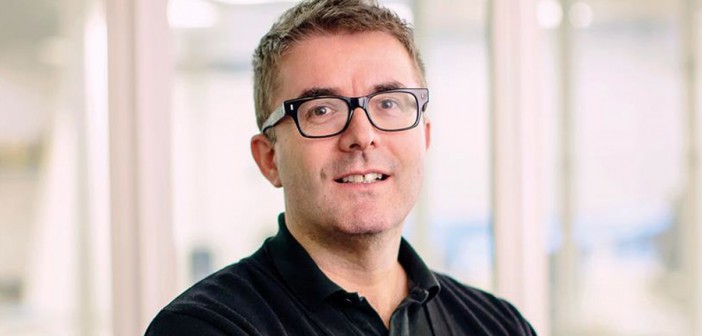Managing the organised chaos of an ad agency requires a certain approach and a special set of skills, says Adam & Eve/DDB chief executive James Murphy.
Know what kind of agency you want to work in
Most of us will have been shaped by the early places we worked. I’ve experienced things I loved (the shared experience of success and failure, energy, debate and the realisation that you can create things together that will change your agency’s and your client’s fortunes). There were other things that I disliked (hierarchy, politics, wasting time and money, lip service to creativity and lack of honesty). These experiences shaped the kind of agency I’d like to work in.
Get a gang
Whether big or small, the best agencies feel like a gang . A gang you want to be part of, a team you want to work with, friends you enjoy getting drunk with. A great team is infectious; something clients point to, pitch consultants swear by and industry commentators are savvy to. It doesn’t mean everyone gets on the whole time but, if you share a view on life and work, you can argue, debate, infuriate and then get over it.
It’s not about vision statements
The boss of another agency asked me how we had created a culture and vision that enabled us to make great work and win pitches. My answer was that we make great work and we win pitches. I’m suspicious of people who want to do workshops on the vision of our organisation or come up with agency brand statements. They’re usually the people who can’t create or make anything with vision for clients. We express our vision in the work that leaves the agency every day.
It’s about leading by example
Don’t try to write down the values of your agency in trite statements or management babble. Agency people are too smart to insult their intelligence. You have to exemplify them every day. Don’t expect anyone in your agency to do something you wouldn’t do. If people are working late on a pitch, then we’re in among it; if you want people to do brave work, then you’d better be prepared to back them . And if there’s bad news to break to a client, or a very tricky meeting, that isn’t delegated.
We’re a craft business – we make things
Whether it’s brilliant strategies, amazing positioning work, brilliant execution and experiences through any of a huge range of channels…we’re making stuff, week in and week out. If you’re running the agency, you need to work hard to make sure you’re creating the best possible conditions for great stuff to be crafted and made. Sometimes it means creating space and time for brilliant people, sometimes it actually means the opposite – creating urgency and energy and adrenaline. Some senior types think they’re above the work and just focus on the money, the strategies and the business. The best chief executives obsess about the work – because that is the business.
Be a simplifier
It’s a lot harder to be simple and there are loads of pseuds out there trying to baffle you with jargon and over-wrought thinking. Consumers and clients have complicated lives – we can help both, and do our jobs, by being simple.
Avoid the paralysis of perfection
Momentum is important in a creative business. It’s amazing how quickly things can grind to a halt because people are looking for the perfect answer. Better to make a decision and press on; if it’s wrong, you’ll find out soon enough and you’ll have the momentum to correct your course quickly.
Find out what you’re good at (and do that)
With experience, you get a much clearer idea of where you’re competent and what you enjoy doing. Once you’ve got that, you can supplement your failings by having great and varied talent around you. It’s rare, and frankly annoying, if someone is a total smarty-pants and can do everything.
In a nutshell
How will your job change in the next five years? Well, the gang I mentioned is growing. Agencies are evolving to encompass much broader skills and expertise. We’ve moved beyond creating selling messages to creating selling tools and experiences, and then utilities that keep customers involved with brands. So, as a chief executive, you’re working across teams with more diverse skills and personality types than ever before. We need to provide a workplace that is exciting and challenging for people who are as excited by tech and user experience as others may be by writing and images.
What do you need to be a successful agency chief executive? You have to enjoy balancing process and chaos. You need some process – more so as you grow. But when it becomes an end in itself, you kill the energy and joy in a creative organisation. I’m never happier than when the whole thing feels like it’s going at 200mph and might leave the rails. But that’s not everyone’s bag.
What do you look for when hiring someone? Someone with opinions and energy. Agencies, especially larger ones, can become crippled by too much respect for authority. People assume that, because someone is in charge, they know best. This is dangerous. Just because someone schmoozed their way to a corner office or did one Cannes-winning ad back in the 90s doesn’t mean they’re an expert on delivering a seamless social and content campaign to engage distracted millennials. You want people who speak up, who flag up problems so they can be solved. The old hierarchies and egos of adland have stifled this creative energy over the years. Great talent must feel free to be opinionated and contribute – whatever their age, stage or specialism. Many of the best things we’ve done were made brilliant by unexpected contributions from unexpected people.

